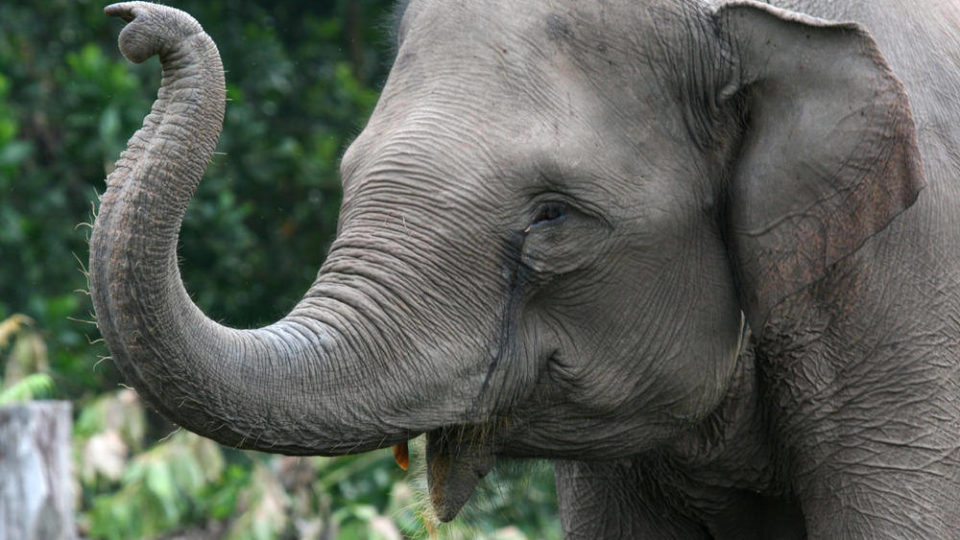Although the problem of palm oil plantations in parts of Indonesia is usually talked about in terms of the massive haze-emitting fires caused by their rapid expansion, another one of the many consequences of palm oil-driven deforestation is the loss of natural habitats for many endangered species, often forcing them into conflict with humans in the area.
One such incident occurred recently in Petani Village, located in Riau’s Bengkalis Regency on the island of Sumatra. The village is located adjacent to an elephant habitat in the forest conservation area of Balai Raja, which has long been the home to a significant population of Sumatran elephants.
However, around 18,000 hectares of the forest have now been overrun with palm oil and rubber plantations, leading conservationist to warn that the elephants now have almost no place to make their homes, forcing them to venture out towards human settlements in search of food.
“The elephant of Balai Raja have difficulties finding a safe place, all (of their old habitats) have changed their function, so elephants are forced to go down to settlements to find food, the impact is often conflicts between humans and elephants. On November 11, elephants attacked a residents named Tukiyah around Balai Raja and the victim died, so we are asking the government to find a solution,” Syamsidar, a spokesperson for the World Wildlife Fund (WWF) in Riau told Okezone last month.
Fortunately, the most recent episode of elephant-human interaction around Balai Raja did not end in any deaths. It began when two elephants entered Petani Village on Saturday night, one of which had a wounded leg due to a trap that had been set by the villagers.
Under cover of darkness, the elephants broke into the kitchen of a 28-year-old villager. The loud noises frightened the homeowner, who thought thieves had broken into their home.
Shouts for help led several neighbors to the house, where they were amazed to see that it was two elephants, and that they had actually gotten into the kitchen by smashing through a wall.
The locals managed to scare the elephants off without more violence. Checking out the damage, they saw that the giant mammals had gone after the rice and salt stored in the kitchen cupboards. The scared homeowner slept in a neighbor’s house that night, scared the elephants might return, but they have not come back, yet.
“The two elephants that entered the kitchen are still in the vicinity of the settlement, because their habitat has been destroyed by the people and turned into palm oil plantations,” said Muhammad Arif, a spokesperson for environmental group Himpunan Pegiat Alam (Hipam), as quoted by Detik.
Hungry elephants in Riau have been known to go after young oil palm plants as well, further putting them at risk of attack by locals. Tame elephants are sometimes deployed to lead them to safer areas. But soon there may be no safe areas left.




